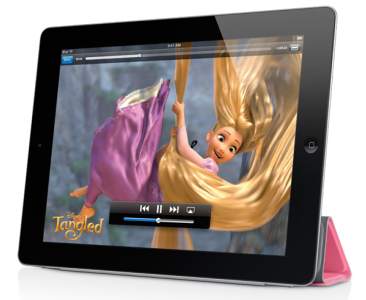Gartner analyst Carolina Milanesi has confirmed what most of us already know: Apple’s wildly popular iPad will dominate the media tablet market until at least 2015.
Indeed, iOS is projected to account for 69% of media tablet OSs in 2011, but will dip to 47% in 2015.
“Apple’s iPad did to the tablet PC market what the iPhone did to the smartphone market: re-invented it. A media tablet is not just a different form factor to perform the same tasks that can be done on a PC,” the analyst explained.

“Tablets deliver a richer experience around content consumption, thanks to the ecosystem they support. The richer the ecosystem, the stronger the pull for consumers.”
According to Milanesi, numerous vendors are valiantly attempting to compete with Apple by first delivering on hardware – and then trying to leverage the platform ecosystem.
“Many, however, are making the same mistake that was made in the first response wave to the iPhone, as they are prioritizing hardware features over applications, services and overall user experience.
“Tablets will be much more dependent on the latter than smartphones have been, and the sooner vendors realize that the better chance they have to compete head-to-head with Apple.”
So, what about Android?
Well, Gartner forecasts Google’s mobile OS will increase its worldwide share of the media tablet market from 20% in 2011 to 39% in 2015.
Although Mountain View’s decision to keep Honeycomb (Android 3.0) closed to third-parties is expected to prevent fragmentation, it will also slow price decline and ultimately cap market share.

“Volume will be driven by support from many players, the ecosystem of applications for tablets getting more competitive and some platform flexibility allowing lower price points,” noted Gartner analyst Roberta Cozza.
“The new licensing model Google has introduced with Honeycomb enables Google to drive more control, allowing only optimal tablet implementations that don’t compromise quality of experience. This might mean that prices will drop at a slower pace than what we have seen in the smartphone market.”
Meanwhile, with the migration of Blackberry devices to QNX – the OS used on the Blackberry PlayBook – in 2012, RIM will be capable of offering users a consistent experience across its whole product portfolio, while creating a single developer community.
Although QNX is a strong platform that delivers on performance, graphics and multitasking features, Milanesi believes success in the media tablet market will ultimately be driven by “richness” of ecosystem.
“It will take time and significant effort for RIM to attract developers and deliver a compelling ecosystem of applications and services around QNX to position it as a viable alternative to Apple or Android. This will limit RIM’s market share growth over the forecast period.
“It will be mainly organizations that will be interested in RIM’s tablets because they either already have RIM’s infrastructure deployed or have stringent security requirements,” she added.






